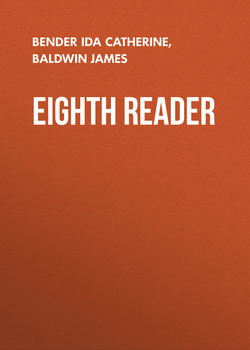Читать книгу Eighth Reader - Baldwin James - Страница 1
TO THE TEACHER
ОглавлениеThe paramount design of this series of School Readers is to help young people to acquire the art and the habit of reading well – that is, of interpreting the printed page in such manner as to give pleasure and instruction to themselves and to those who listen to them. In his eighth year at school the pupil is supposed to be able to read, with ease and with some degree of fluency, anything in the English language that may come to his hand; but, that he may read always with the understanding and in a manner pleasing to his hearers and satisfactory to himself, he must still have daily systematic practice in the rendering of selections not too difficult for comprehension and yet embracing various styles of literary workmanship and illustrating the different forms of English composition. The contents of this volume have been chosen and arranged to supply – or, where not supplying, to suggest – the materials for this kind of practice.
Particular attention is called both to the high quality and to the wide variety of the selections herein presented. They include specimens of many styles of literary workmanship – the products of the best thought of modern times. It is believed that their study will not only prove interesting to pupils, but will inspire them with a desire to read still more upon the same subjects or from the works of the same authors; for it is only by loving books and learning to know them that any one can become a really good reader.
The pupils should be encouraged to seek for and point out the particular passages in each selection that are distinguished for their beauty, their truth, or their peculiar adaptability to the purpose in view. The habit should be cultivated of looking for and enjoying the admirable qualities of any worthy literary production; and special attention should be given to the style of writing which characterizes and gives value to the works of various authors. These points should be the subjects of daily discussions between teacher and pupils.
The notes under the head of "Expression," which follow many of the lessons, are intended, not only to aid in securing correctness of expression, but also to afford suggestions for the appreciative reading of the selections and an intelligent comparison of their literary peculiarities. In the study of new, difficult, or unusual words, the pupils should invariably refer to the dictionary.
